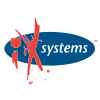GCompris is a free program for early learners ages 2-10.
A brief look at different open source geospatial technologies
Secure free as in freedom and free as in cost real-time communications for everyone
The GPL enforcement process remains opaque to most FLOSS developers and users. This talk will explain how GPL enforcement works, what users and companies should do to comply, and what developers should do to help their users comply.
See how it is possible to deploy and manage a large number of desktops and thin clients in a private cloud using LTSP-Cluster
Learn how to mitigate the risk of disaster through a variety of methods.
How do you make that cute little netbook more responsive? Can you run modern software on old, slow machines? Learn the secrets for trimming down your distro so it runs "lean and mean" even on modest hardware.
Covers Phoronix Test Suite's development background and some guidance for how Benchmarking and Testing can improve the Linux ecosystem.
We all know that Linux has some wonderful tools for developing applications. I learnt these tools to become the sole IT support for my business ( a sucessful dental office). I'll tell you what I did, and hopefully inspire you to do the same.
How to promote free software projects to attract users, developers, translators, content creators, and more.







